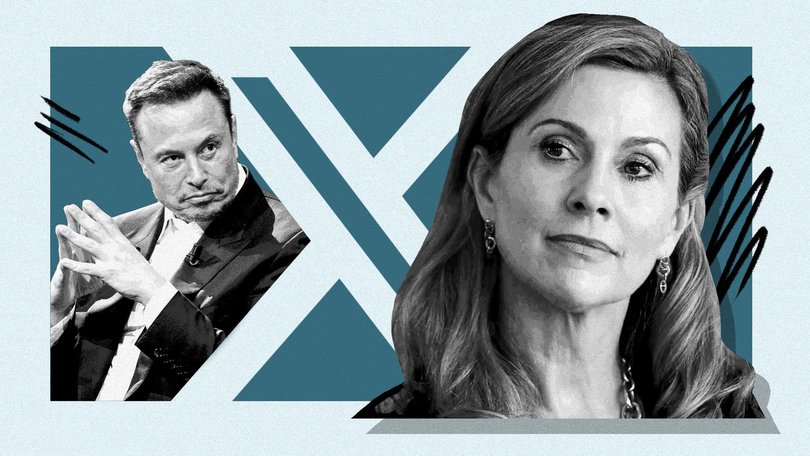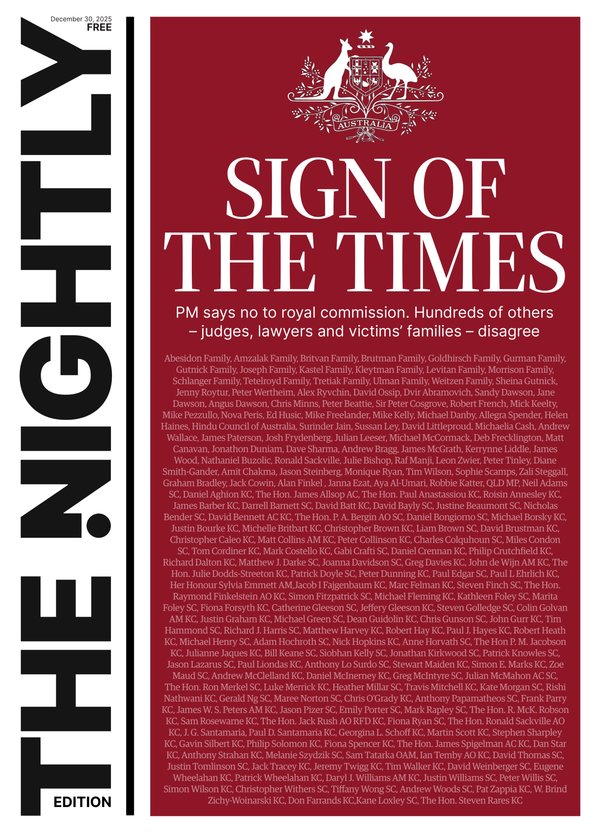EDITORIAL: Was big tech moral outrage all just for show?

In retrospect, it was a masterclass in political diversionary tactics.
In the days after a Sydney teenager was alleged to have committed a terror offence by stabbing Sydney’s Bishop Mar Mari Emmanuel during a live-streamed sermon, Anthony Albanese focused the nation’s fury on one man — Elon Musk.
The X (formerly Twitter) owner is a pretty good target for a politician looking for a distraction. Musk is happy to play the role of a cartoon villain.
Sign up to The Nightly's newsletters.
Get the first look at the digital newspaper, curated daily stories and breaking headlines delivered to your inbox.
By continuing you agree to our Terms and Privacy Policy.One got the feeling he was enjoying the attention he received by refusing the direction from Australia’s eSafety Commissioner (who he referred to as “censorship commissar”) to remove the distressing footage from his social media platform.
Others were happy to join in. There was no shortage of pollies ready to lash out at Musk, calling him, among other things: “egotistical”, “immoral”, “narcissistic”, “insulting” and “offensive”.
The Government talked a big game at the time, vowing to crack down on tech giants who believe themselves above the law, and pledging to vigorously fight any further legal challenge from X against an interim takedown notice issued by the Federal Court.
But it all ended rather pathetically on Wednesday, with Commissioner Julie Inman Grant abandoning the fight, saying that doing so was a “strategic decision” based in part on the astronomical cost to the taxpayer of pursuing the action.
So much for all that righteous outrage.
The fact is that footage of the alleged stabbing in Sydney is just a drop in the ocean of depraved content online — not just on X but across the internet.
Racism, misogyny, cyberbullying, extortion, sexual exploitation of children. All are rife.
In recent weeks alone we’ve reported on international students duped into staging their own kidnappings to extort ransoms out of loved ones, the shocking death of a Perth teen radicalised online, and the suicide of a NSW schoolboy duped into sending intimate images to an African crime gang.
This is a threat that demands serious enforcement action from authorities. So far, the eSafety Commission has proved itself woefully inadequate for the task.
And as artificial intelligence becomes more advanced and more entrenched in our everyday lives, the challenge is only going to grow.
One of the more frightening consequences of the AI revolution we have landed in is that so much about the future of humanity now rests with a handful of pasty-faced and emotionally stunted Silicon Valley boy kings.
They may be good at coding, but they’re not the people you want making moral decisions on behalf of the species. But unless the law manages to catch up with them, that’s what will happen.
Even insiders are worried about the potential destructive impacts of unchecked AI development.
An open letter from current and former OpenAI employees warned that AI companies had “strong financial incentives to avoid effective oversight” and their technologies posed “serious risks”.
It’s clear these companies can’t be trusted to self-regulate. Authorities need to get serious about holding them to account.
Responsibility for the editorial comment is taken by WAN Editor Christopher Dore
